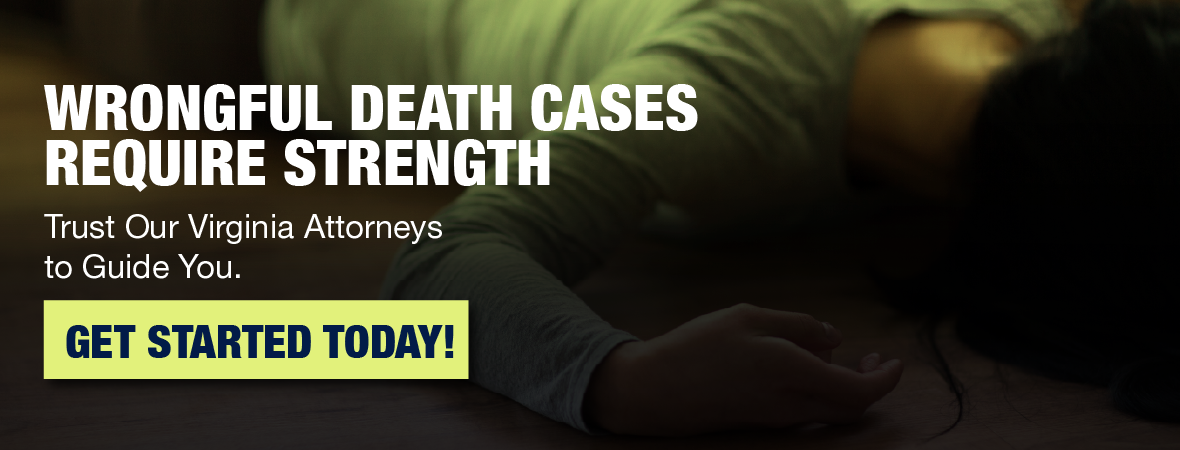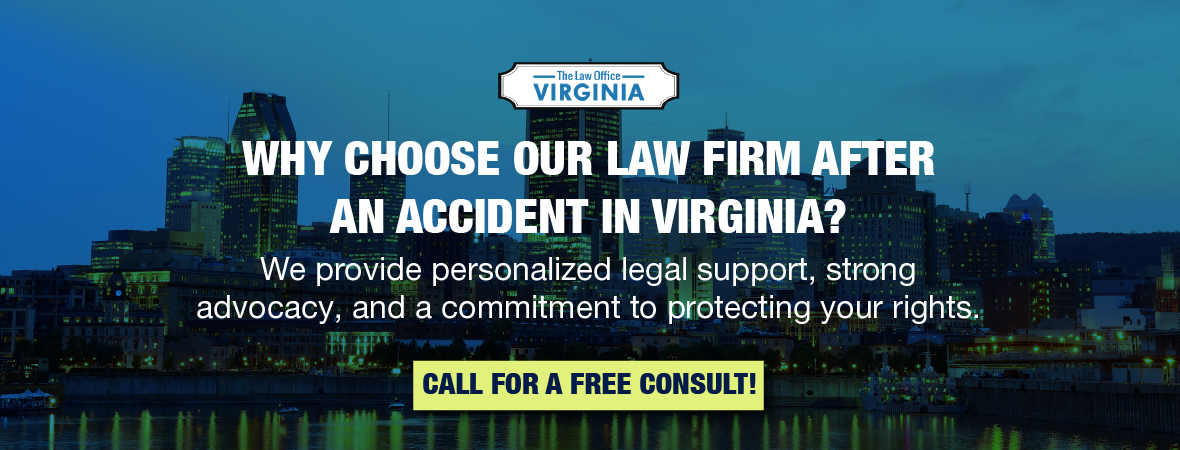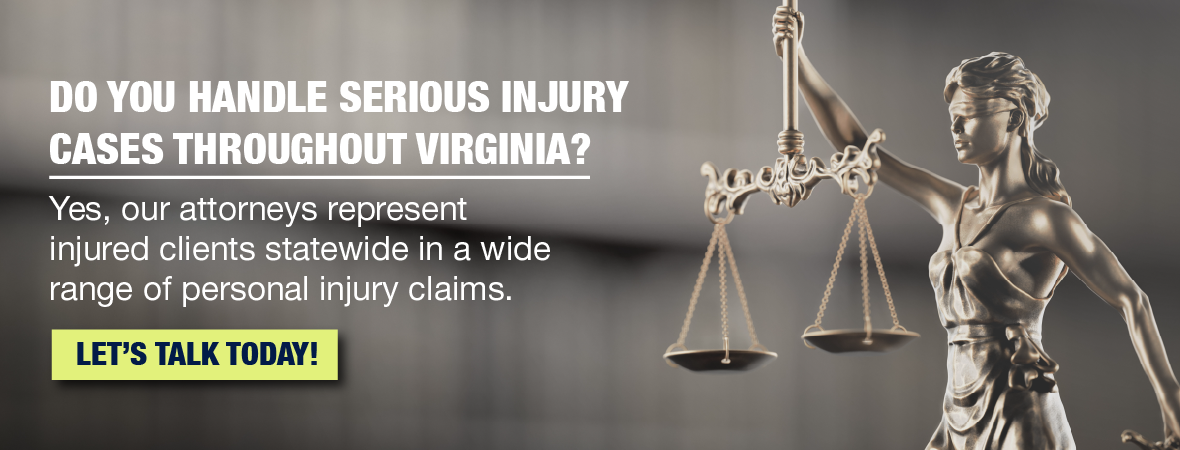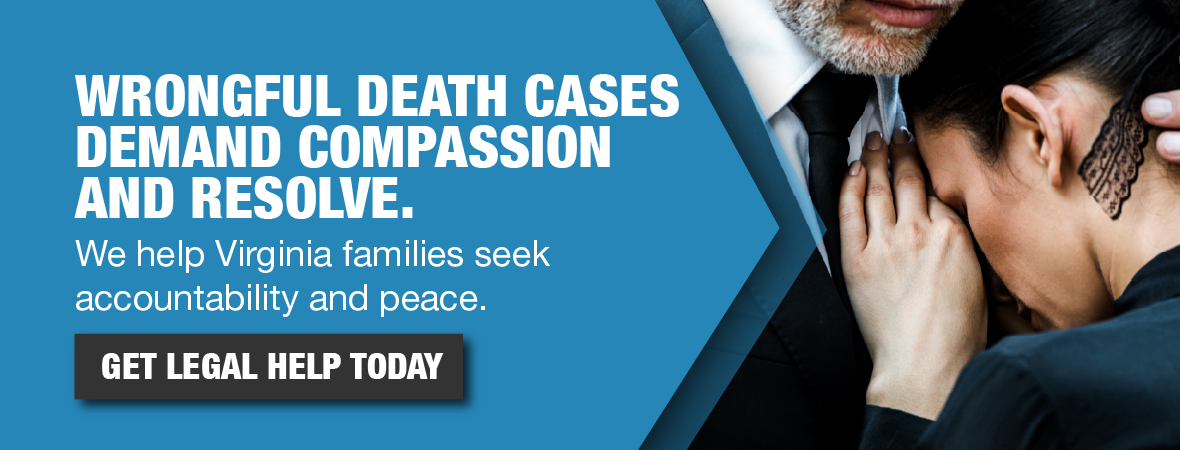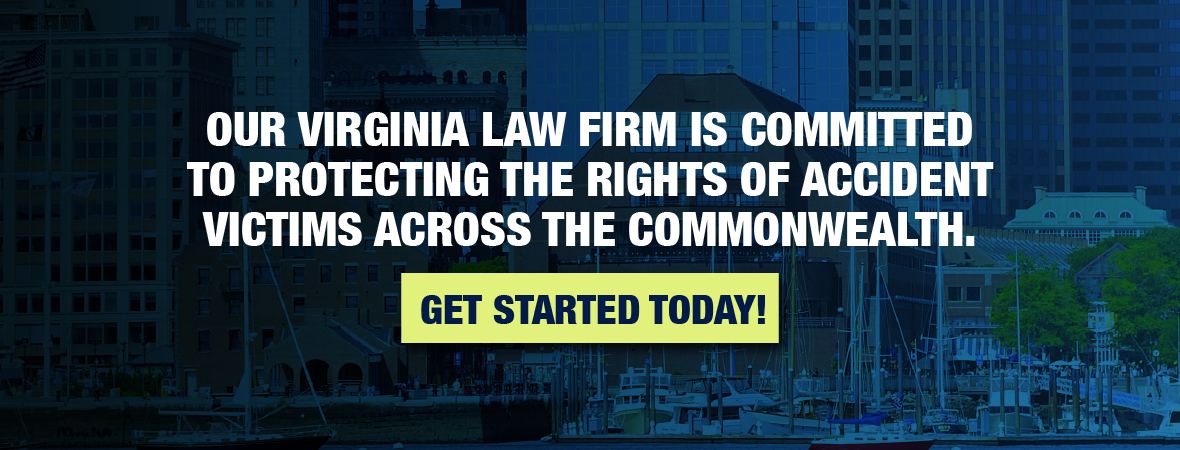Wrongful Death Lawyer in Virginia: Seeking Justice for Your Loved One
If you lost a loved one due to another person’s negligence, an experienced wrongful death lawyer in Virginia can help. Contact us today to learn about your options and start your family’s journey towards recovery.
Losing a loved one is one of life’s most painful experiences—and when that loss is caused by someone else’s negligence or wrongdoing, the grief is compounded by frustration, anger, and a desire for justice. Under Virginia law, surviving family members may be entitled to file a wrongful death claim to recover compensation for the emotional and financial losses that follow such a tragedy. While no legal action can ever replace the person you lost, holding the responsible party accountable can provide a sense of closure and financial support for your family’s future.
Wrongful death claims in Virginia are civil lawsuits that arise when someone’s careless, reckless, or intentional act causes another person’s death. These cases may involve a wide range of fatal incidents, such as car crashes, truck accidents, medical malpractice, or dangerous conditions on someone’s property. They are governed by strict rules regarding who can file, what damages may be recovered, and how long you have to act.
If you’re facing the aftermath of a wrongful death, it’s critical to speak with an experienced attorney who understands Virginia’s laws and can guide your family through the legal process with compassion and skill. A wrongful death claim can help you recover damages for funeral costs, lost financial support, emotional anguish, and more.
Overview of Wrongful Death Claims: A Legal Guide for Families By a Wrongful Death Lawyer Virginia
A wrongful death claim arises when a person’s death is caused by another party’s negligent or intentional actions. In Virginia, wrongful death cases are serious legal matters that seek to hold responsible parties accountable and provide financial compensation to grieving family members. Whether the cause of death is a motor vehicle accident, medical malpractice, a workplace injury, or a defective product, the legal process exists to address the harm caused by another’s actions.
Virginia’s wrongful death law provides that the surviving family members (such as a spouse, child, or parent) can file a lawsuit for compensation. This process is designed to offer financial relief for the loss and suffering caused by the untimely death of a loved one. A successful claim can help family members recover funeral expenses, lost income, emotional distress damages, and more.
Common Causes of Wrongful Death in Virginia
Wrongful death can occur due to a variety of incidents. Some of the most common causes of wrongful death in Virginia include:
- Car Accidents: As mentioned earlier, car accidents are a leading cause of wrongful deaths. According to the Virginia DMV, distracted driving, speeding, and impaired driving are significant contributing factors to fatal crashes.
- Medical Malpractice: Errors made by healthcare professionals, such as misdiagnosis, surgical mistakes, or medication errors, can lead to fatal consequences. A wrongful death lawsuit can help families hold healthcare providers accountable for their negligence.
- Workplace Accidents: Fatal accidents at the workplace, especially in high-risk industries like construction, manufacturing, or agriculture can lead to wrongful death claims. Workers who die due to unsafe working conditions or lack of safety equipment may have a claim.
- Defective Products: In cases where a product is defectively designed or manufactured and causes the death of a consumer, the deceased’s family may have grounds to file a wrongful death claim against the manufacturer or distributor.
- Premises Liability: If a property owner fails to maintain a safe environment and a fatal accident occurs, such as a slip and fall or dangerous condition on the premises, wrongful death claims may arise from these situations.
Who Can File a Wrongful Death Claim in Virginia?
Virginia law specifies who is eligible to file a wrongful death lawsuit. The law prioritizes family members who were most directly affected by the death. The following people are generally allowed to file a claim:
- Spouse: A surviving spouse may file a wrongful death claim on behalf of the deceased spouse, particularly if they were financially dependent on them.
- Children: Minor children or adult children who were financially or emotionally dependent on the deceased can also file a claim.
- Parents: In cases where the deceased is a minor or if no other family members are eligible, parents may file a wrongful death claim.
- Estate Representatives: If none of the direct family members file, the representative of the deceased’s estate may pursue a wrongful death claim. This person would be appointed by the court.
Wrongful Death Lawyer Virginia Explains the Statute of Limitations for Wrongful Death Cases
In Virginia, families typically have two years from the date of death to file a wrongful death lawsuit. This legal time frame, known as the statute of limitations, is outlined in Virginia Code § 8.01-244. If a case is not filed within that period, the court may refuse to hear it, regardless of how strong the evidence may be.
Some exceptions may apply. For example, if the cause of death was not immediately obvious, the time limit may be extended under the “discovery rule.” However, those cases are rare, and it’s generally safest to consult a wrongful death attorney as soon as possible to preserve your right to pursue justice.
Types of Compensation an Experienced Wrongful Death Lawyer Virginia Can Secure Victims
Families who have lost a loved one due to wrongful death in Virginia may be entitled to various types of compensation. These damages are meant to help the surviving family members recover emotionally and financially. Types of compensation may be categorized in economic damages, non-economic damages, and in some special cases, punitive damages.
Economic damages cover tangible financial losses resulting from the death. These typically include:
- Funeral and Burial Expenses: These are the costs associated with laying the deceased to rest, including funeral services and cemetery costs.
- Medical Expenses: If the deceased received medical treatment before passing, the surviving family members may be entitled to compensation for those costs.
- Loss of Income: If the deceased was the primary wage earner in the family, the survivors may be entitled to compensation for the loss of future earnings that the deceased would have provided.
These amounts can be supported by documentation such as hospital bills, employment records, and testimony about the deceased’s role in the household.
Non-economic damages compensate for the more personal, intangible losses suffered by the survivors. These include:
- Pain and Suffering: Surviving family members may be awarded damages for the emotional distress and pain caused by the loss of their loved one.
- Loss of Consortium: This refers to the loss of companionship, love, and affection that the surviving spouse or children would have had if the deceased had lived.
Alhough harder to quantify, non-economic damages are a crucial part of the compensation, reflecting the emotional devastation caused by an unexpected death.
Punitive damages may also be available in cases where the defendant’s conduct was particularly reckless or malicious. These damages are intended not to compensate, but to punish the wrongdoer and deter similar conduct in the future. Virginia law caps punitive damages at $350,000, and they are only awarded when there is clear and convincing evidence of willful or wanton conduct.
It’s essential to work with an attorney who understands how to calculate and present these damages effectively. The goal is to ensure the surviving family receives full and fair compensation that reflects the magnitude of their loss.
How Compensation Is Calculated in Wrongful Death Cases
Compensation in a wrongful death case is fundamentally structured to address the wide-ranging impacts that the loss of a loved one can have on surviving family members. Such compensation is intended to cover both economic and non-economic damages, allowing for a more comprehensive acknowledgment of the various losses experienced by survivors.
Economic damages are typically tangible and quantifiable. They often include funeral and burial expenses, which can be significant, and should be accounted for to alleviate the financial burden placed on the family during an already distressing time. Additionally, loss of income is a crucial aspect; if the deceased was the primary breadwinner, their sudden absence can lead to severe financial instability for their dependents. Medical costs related to the fatal injury, such as hospital bills or treatment expenses incurred before the death, are also considered under economic damages. These costs can accumulate rapidly and further compound the financial strain on surviving family members.
On the other hand, non-economic damages encompass those more subjective aspects of loss that are harder to quantify. These may include pain and suffering experienced by the survivors, which refers to the emotional anguish and distress resulting from the loss of a loved one. The loss of companionship is also a significant factor; families may lose not just the person but the relationships, support, and love that person provided. Emotional distress, which can manifest as anxiety, depression, or profound sorrow, is another critical component of non-economic damages, recognizing that the emotional toll can be just as debilitating as financial losses.
The amount awarded in a wrongful death case is often influenced by various factors, including the deceased’s age, occupation, and income level, as well as their specific role within the family unit. A younger individual with many earning years ahead may generate a higher economic value in terms of lost income. Meanwhile, the emotional loss experienced by surviving family members can differ drastically based on interpersonal relationships and the deceased’s contribution to the family dynamic.
Given the complexities involved in determining damages and the intricacies of legal proceedings, consulting with an experienced wrongful death attorney is crucial. Such an attorney can provide invaluable guidance in accurately estimating a fair value for your case, drawing on legal precedents, evidence, and expert testimony where needed. They can help navigate the legal landscape, ensuring that the surviving family members obtain the compensation they deserve for both the economic and non-economic losses they have suffered as a result of their loved one’s untimely death.
The Emotional Toll and Legal Support for Families
Losing a loved one unexpectedly is one of the most devastating experiences a family can face. In wrongful death cases, that grief is often accompanied by the anger, confusion, and frustration of knowing the loss could have been prevented. The emotional toll can be overwhelming, especially when the deceased played a central role in the household—as a caregiver, emotional anchor, or primary source of income.
The absence is felt not just in daily routines, but in milestones and moments that now pass without them. Birthdays, holidays, and even ordinary evenings can become painful reminders. For children, the loss of a parent can deeply impact their development and emotional stability. For spouses, the future they planned is often upended in an instant.
While financial compensation cannot replace a loved one, pursuing a wrongful death claim can serve as a form of emotional closure. It’s a way of acknowledging the harm done, holding the responsible party accountable, and securing resources that ease the burdens of this difficult chapter.
During such a vulnerable time, having compassionate and competent legal support is vital. A wrongful death attorney does more than manage documents and court filings, our team will become an advocate for your family’s voice and needs. A skilled attorney ensures the process is handled with care, relieving survivors of procedural stress so they can begin to grieve and heal in peace.
Wrongful death cases require not only legal knowledge but emotional sensitivity. We will listen, guide, and stand beside your family every step of the way, honoring the memory of the person lost by fighting for the justice they deserve.
The Importance of Working with an Experienced Wrongful Death Lawyer Virginia
Wrongful death claims can be emotionally and legally complex. Virginia’s wrongful death laws are often nuanced, and successfully navigating the legal system requires knowledge of both the law and how insurance companies work. A skilled wrongful death lawyer can help ensure your family gets the compensation it deserves by:
- Investigating the Case: An attorney can gather all necessary evidence to determine the cause of death and identify liable parties.
- Handling Insurance Companies: Insurance companies often try to minimize payouts, which can be challenging when grieving a loss. A lawyer will negotiate with insurers on your behalf, ensuring you don’t settle for less than you deserve.
- Filing the Lawsuit: If necessary, your lawyer will help you file a wrongful death lawsuit and represent your family in court, ensuring that your case is presented in the most favorable light.
- Maximizing Compensation: A wrongful death lawyer will fight for compensation that addresses both current and future financial losses, including emotional damages, and will advocate for fair treatment from all responsible parties.
Contact a Wrongful Death Lawyer Virginia Today
Dealing with the loss of a loved one is never easy, and the added stress of navigating a wrongful death lawsuit can feel overwhelming. Our experienced Virginia wrongful death lawyers are committed to helping grieving families get the justice and compensation they deserve. We handle the legal complexities of wrongful death cases while you focus on healing and being with your loved ones.
Our team has a proven track record of success in wrongful death cases, offering compassionate representation and a commitment to securing the maximum compensation possible. We understand that no amount of money can replace the loss of a loved one, but we aim to help families move forward without the added burden of financial distress.
Contact us today for a free consultation to discuss your case. Let us fight for the justice and compensation your family deserves during this difficult time.
